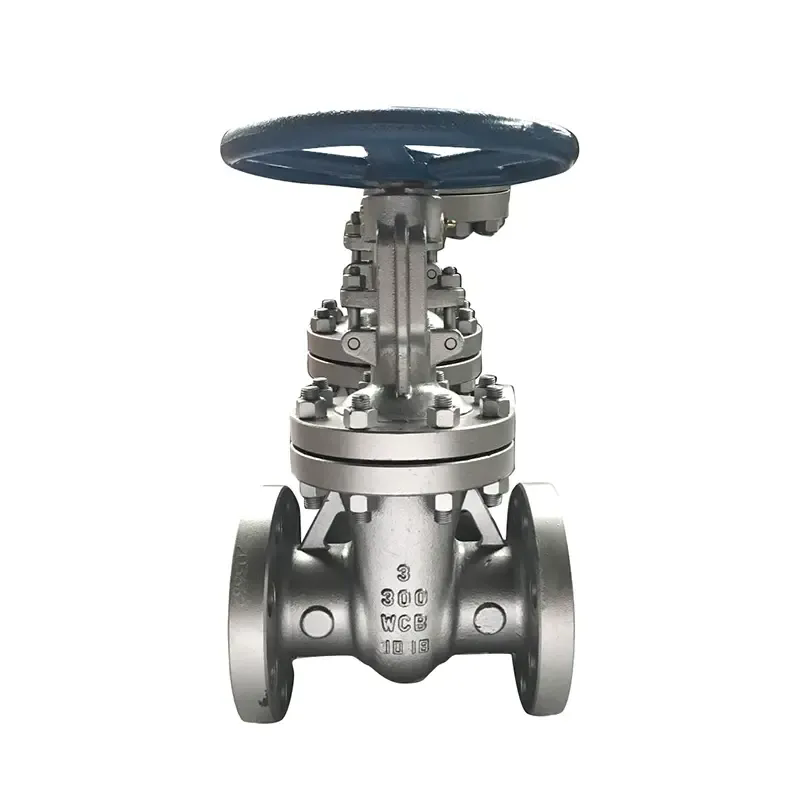What Are Gate Valves and How Do They Work?
2024-11-26
Gate valves are an essential component in a wide range of industrial systems, used to control the flow of liquids and gases in pipelines. Their reliable functionality and simple design have made them a popular choice in applications across various industries. But what exactly are gate valves, and how do they work? Let's explore the features, benefits, and key uses of gate valves.
What is a Gate Valve?
A gate valve is a type of valve used to start or stop the flow of a substance through a pipe. It operates by raising or lowering a gate (or wedge) within the valve body. The gate moves vertically to control the flow of fluid, essentially acting like a barrier that can either block or allow fluid to pass through.
Gate valves are typically used in pipelines where the flow needs to be completely shut off or fully allowed. They are not intended for regulating or throttling the flow but rather for providing an on/off function.
How Do Gate Valves Work?
The operation of a gate valve is relatively straightforward. The valve consists of a body, gate, stem, seals, and an actuator (manual or motorized). When the valve is closed, the gate (which is usually made of metal or another durable material) is pressed firmly against the valve seat, sealing the valve and preventing fluid from passing through.
To open the valve, the actuator (often a handwheel, gear, or electric motor) moves the gate vertically, allowing the fluid to flow freely through the pipe. The amount the gate is raised determines whether the valve is fully open or only partially open, although in most applications, gate valves are either fully open or fully closed.
Types of Gate Valves
There are several types of gate valves, each suited for different applications. The most common types include:
1. Wedge Gate Valves
These are the most common type of gate valve. They feature a wedge-shaped gate that is pressed against the valve seat to create a tight seal. The wedge gate can be either solid or split. Wedge gate valves are ideal for high-pressure and high-temperature systems.
2. Parallel Gate Valves
In a parallel gate valve, the gate is flat and parallel to the valve seat. These are typically used in low-pressure systems, where the precision of the seal is not as critical. Parallel gate valves are often simpler and less expensive than wedge gate valves.
3. Expanding Gate Valves
Expanding gate valves have a gate that expands slightly as it is raised, ensuring a tight seal even in high-pressure systems. This design helps compensate for seat wear over time and offers better performance in certain industrial applications.
Key Features of Gate Valves
1. Reliable Sealing
Gate valves are known for their excellent sealing capabilities. When fully closed, the gate forms a tight seal with the valve seat, preventing leakage. This makes them suitable for applications where leakage control is critical.
2. Full Bore Flow
Gate valves offer a full bore design, meaning the internal diameter of the valve is the same as the diameter of the pipe. This design allows for unrestricted flow when the valve is open, making it ideal for systems where minimal pressure drop is important.
3. Durability
Constructed from durable materials like cast iron, stainless steel, or brass, gate valves are built to withstand high pressures and temperatures. Their robust construction ensures a long service life, even in harsh environments.
4. Low Friction Operation
Gate valves typically feature low friction during operation, especially when compared to other types of valves like ball valves. This makes them easier to operate manually, especially when using a handwheel or gear actuator.
Applications of Gate Valves
Gate valves are widely used across many industries, from water treatment plants to oil and gas refineries. Some of the most common applications include:
1. Water and Sewage Systems
Gate valves are often used in water distribution systems to control the flow of water in pipelines. They are also used in sewage treatment plants to shut off sections of the pipeline for maintenance or repair.
2. Oil and Gas Industry
In the oil and gas sector, gate valves are critical for controlling the flow of crude oil, natural gas, and refined products. They are used in pipeline systems, refineries, and offshore platforms.
3. Power Plants
Gate valves are used in power plants to control the flow of steam, water, and other fluids used in electricity generation. Their ability to handle high pressures and temperatures makes them ideal for these environments.
4. Chemical Processing
In chemical plants, gate valves help manage the flow of chemicals and gases. Their reliable sealing capabilities are crucial for preventing leaks in hazardous environments.
5. Mining and Other Heavy Industries
Gate valves are used in mining, manufacturing, and heavy industries to regulate the flow of liquids and gases in processing plants and machinery.
Advantages and Disadvantages of Gate Valves
Advantages:
- Simple Operation: Gate valves are straightforward to operate, requiring only a simple up-and-down motion to open or close.
- No Flow Restrictions: When fully open, gate valves provide full flow with minimal restriction.
- Durability: Made from strong materials, gate valves are built to withstand high pressures and harsh conditions.
- Low Maintenance: Gate valves are designed for long-lasting performance with minimal maintenance requirements.
Disadvantages:
- Slow Operation: Gate valves tend to operate slowly, especially when compared to other valve types like ball or globe valves.
- Not Suitable for Throttling: Gate valves are not ideal for regulating flow. They are best used for fully open or fully closed positions.
- Space and Size: Some gate valves, particularly those with large bodies, can be bulky and require significant space for installation.
Conclusion
Gate valves play an important role in controlling the flow of fluids in a variety of industries. Their simple yet effective design makes them an ideal choice for applications where full flow or complete shutoff is necessary. Whether you are working in water treatment, power generation, or chemical processing, understanding the operation and benefits of gate valves is crucial to ensuring the reliability and efficiency of your systems. By selecting the right type of gate valve for your specific application, you can improve flow control, reduce downtime, and enhance the overall performance of your piping systems.



